How To Clean an Axe Head And Handle? Only a few tools are as reliable as the axe for chipping, chopping, piercing, and splitting tasks.
Proper maintenance of your axe is vital to keep it functional. Generally, an axe has just two parts — the head and handle. And among the two, the axe head demands more maintenance.
However, maintaining your axe head isn’t an arduous task. Simply cleaning and oiling it will go a long way.
Read on as we look at how to clean an axe head and handle.
How to Clean An Axe Head?
Below are simple tips for cleaning an axe head:
Cleaning Rust Off of an Axe
Rust is one of the problems you’ll mostly encounter with an axe head. Here’s how to remove it:
Soak in White Vinegar
White vinegar contains acetic acid, which does wonders in removing rust. It’s a simple remedy.
First, pour white vinegar into a deep bowl or container. The bowl must be deep enough to contain the axe head. Place the axe head inside the bowl and set it aside.
Leave the axe head in the bowl for at least 24 hours. You can leave it for far longer if the rust is excessive. You’ll notice the rust coming off as the axe head sits in the bowl.
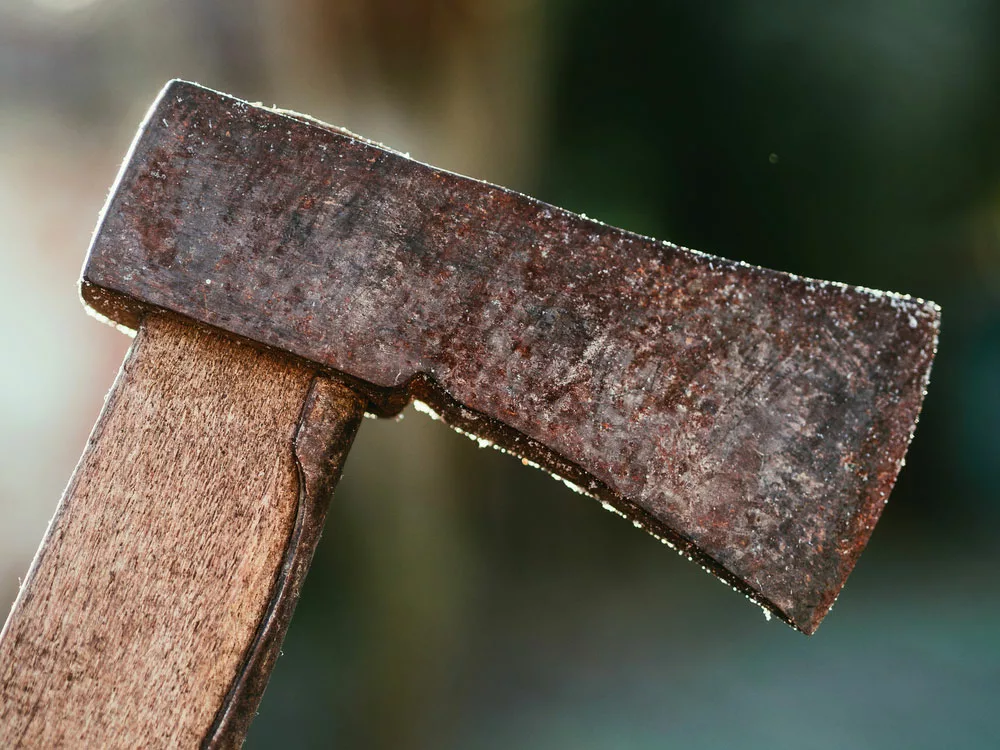
(Rusty axe)
Use A Steel Brush or Steel Sponge
After 24 hours – or longer – remove the axe head from the bowl. Then, thoroughly clean it with a steel brush or sponge.
Using a steel brush or sponge is critical to remove any stubborn rust residue. The rust may still stick on the axe but will go off at a single swipe of the brush or sponge.
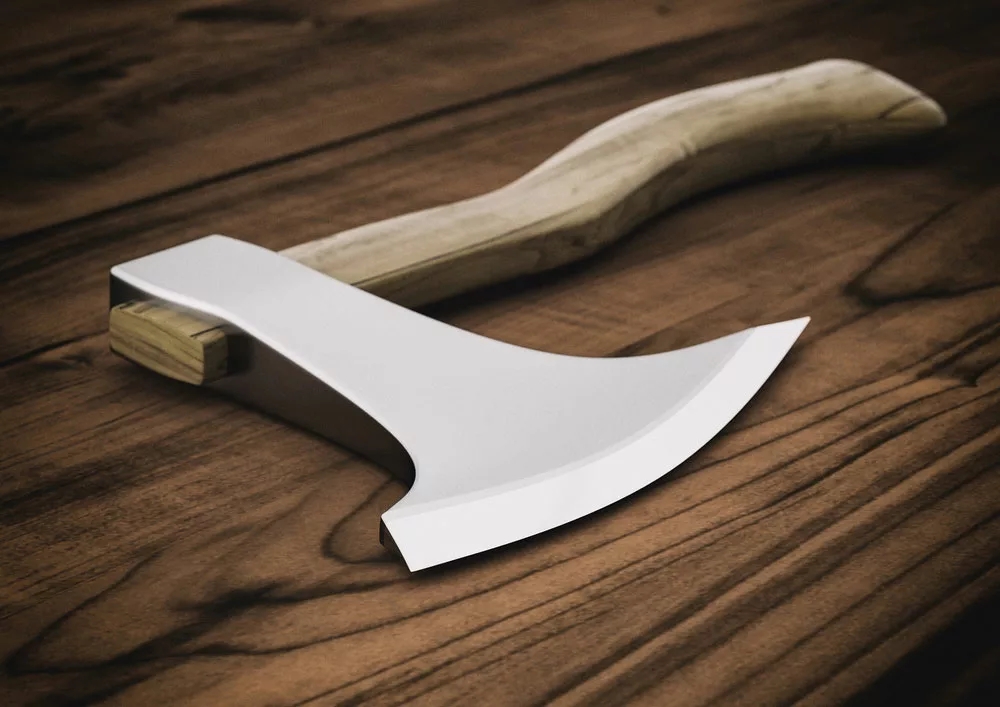
(Clean the axe after washing)
Wash With Warm Water
The next thing to do is to wash the axe head with warm water. Besides doing this to remove the brownish color of rust, it’ll also help reduce the strong vinegar smell. However, the scent may endure after the washing.
Dry Thoroughly
Usually, after washing comes drying. And it’s no different here. The rust will return if you don’t dry the axe head properly. Therefore, run a dry towel around and through the axe head until no moisture is left.
Use Oil To Seal the Axe Head from Moisture
You may not get all the moisture out while drying. That’s fine. You can still prevent future rust by rubbing the axe head with oil. What type of oil should you use? Well, anyone. But mineral oils – like gun oil – are the best.
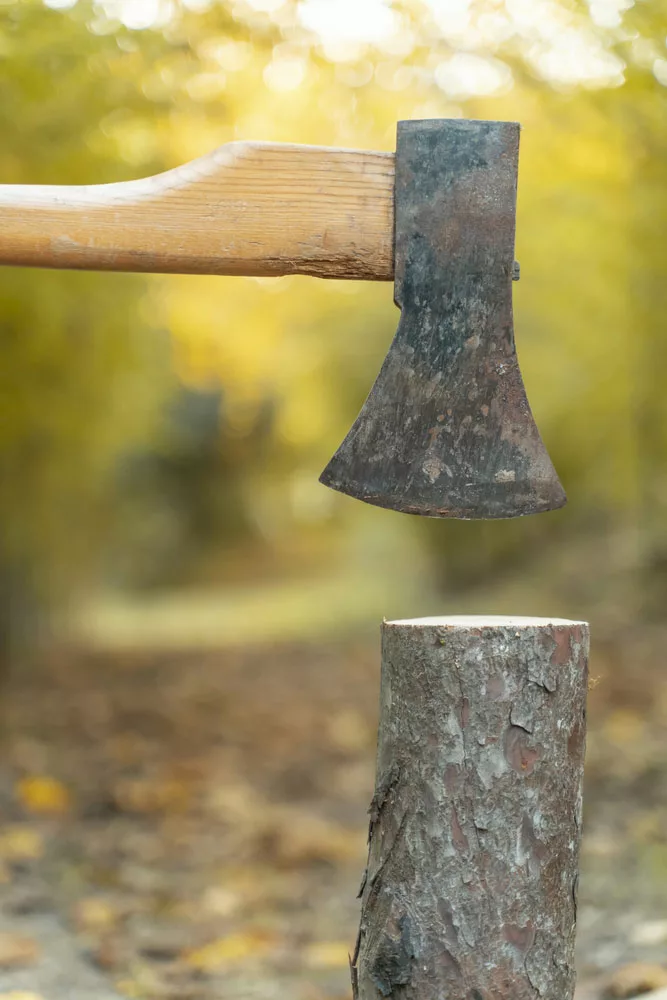
(An old axe)
Cleaning Sap And Resin Off of an Axe Head
One downside of cutting a tree with an axe is that the axe head becomes baptized by resin and sap. Nevertheless, getting these sticky substances off your axe head is doable. Here’s how:
Paint Thinner
Sap and resin are like oils. As a result, a hydrocarbon solvent like paint thinner can remove them. So, get a can of paint thinner and apply it on your axe head covered with sap and resin.
After some time, rub the solvent off using a dry cloth. It goes off, and so does the sticky sap and resin. This method also works on the axe handle.
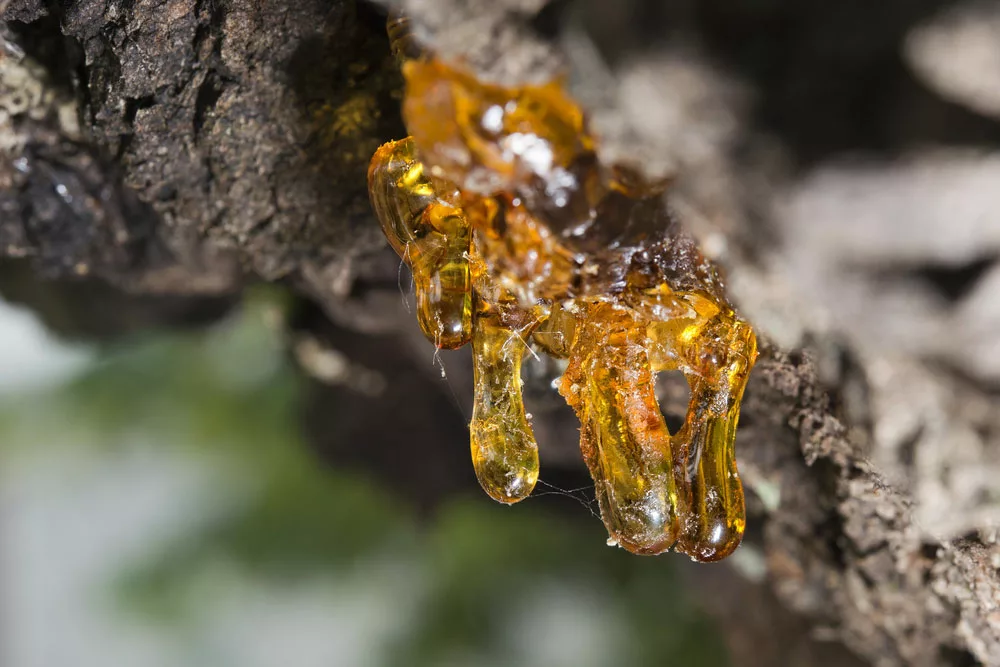
(Resin dripping after cutting a tree)
Lighter Fluid
Lighter fluid is similar to paint thinner, but it is more volatile. Perhaps you’ll consider this option more than the previous one because lighter fluid is more commonplace.
But the procedure is the same: apply the fluid on the axe head and wipe it off afterward.
Acetone
A third option is Acetone, which is ideal if your axe head has a thick sap or resin coating. The sticky substances immediately fall off the axe head as you apply acetone.
Hence, it works faster. Also, order-wise, acetone is less toxic. But it may cost you a few more dollars to purchase.
How to clean the axe handle?
Below are simple tips for cleaning an axe handle:
Use Fine Steel Wool to Remove Dirt
While at work, your axe handle easily gets dirty – with dirt and grime. It’s good practice always to clean off the dirt after every use. And you can do this easily using fine steel wool.
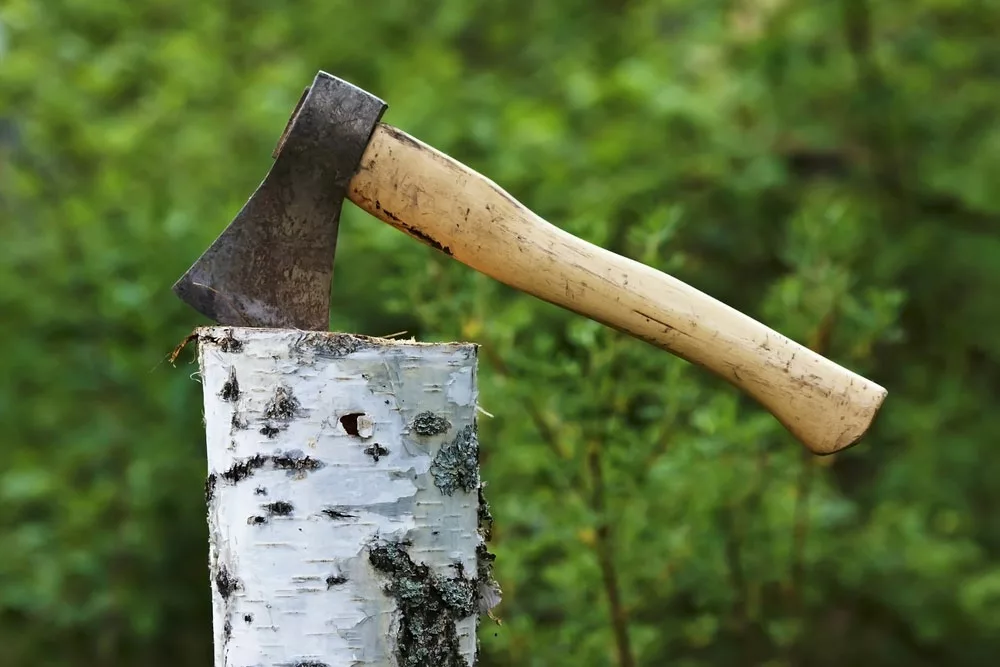
(Full view of an axe head with handle)
Sand the Handle
Besides getting dirty, your axe handle becomes rough with time. Scratches, cuts, and holes appear here and there. To get it back in shape, and the handle using sandpaper.
But be careful not to remove too much wood while sanding. You want to smooth the surface and not reduce the handle size.
Apply Linseed Oil
Prevention is better than cure, they say. If you prevent your axe handle from getting dirty, you’ll have less cleaning to do subsequently.
Applying linseed oil is one way to prevent your axe handle from getting dirty. Besides dirt, the oil will also prevent moisture build-up.
Axe Maintenance Tips
To keep your axe in good shape always, adhere to the below maintenance tips:
- Properly clean and store your axe after each use. After heavy work, you must clean the axe head and handle to remove sap, resin, or moisture. Sometimes, the axe won’t be too dirty. In such situations, cleaning with fine steel wool will serve.
- Use a splitting block when cutting wood. A splitting block will ensure your axe head doesn’t strike the ground when it goes through the wood. It’ll prevent the axe head from getting dull, which is what will happen if it hits the ground.
- Sharpen your axe head when it gets dull. Working with a dull blade is ineffective. Not just ineffective, but it’s also dangerous. So, ensure you sharpen your axe head from time to time.
- Oil your axe handle from time to time. Your axe handle is wood, less durable than the iron axe head. So, it requires more protection from outdoor elements.
- Oiling the handle provides that much-needed protection, as it stops the wood from cracking or shrinking. Also, it expands the wood as it absorbs, making it sturdy.
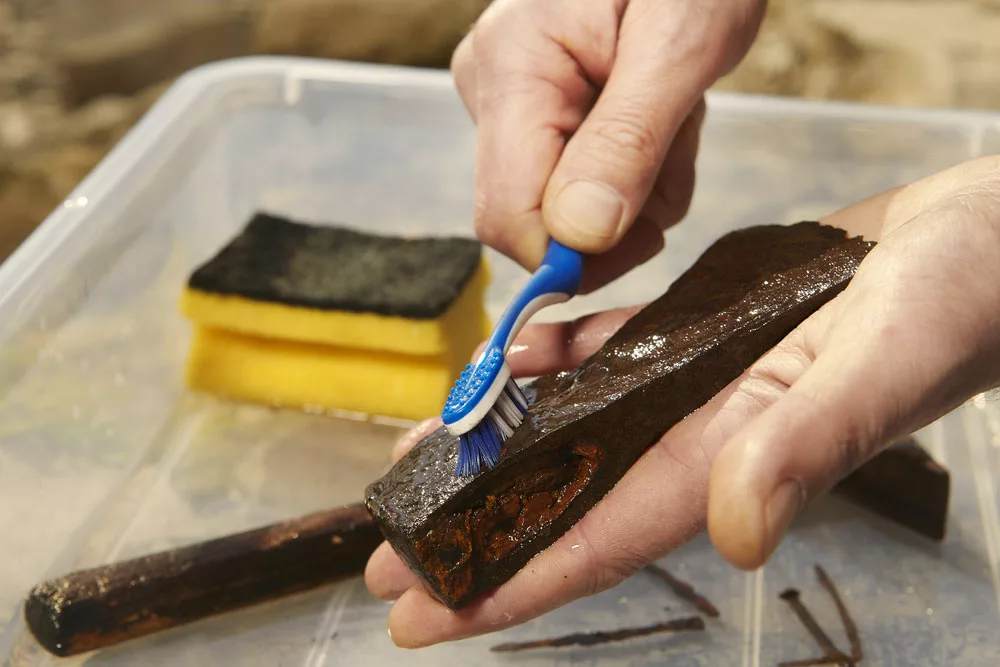
(Cleaning axe head with the brush)
Conclusion
A good-performing axe undergoes good maintenance. Refrain from letting your axe and axe handle rust, dirt, sap, or resin. You can deal with these troubles with the tips on how to clean an axe head and handle listed above.
